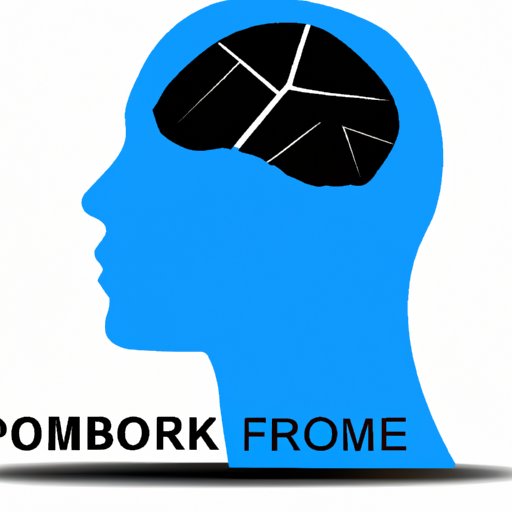
Introduction
Stress is a part of daily life, and we all experience it at some point. However, stress can have long-term physical and mental impacts, including memory loss. Stress-induced memory loss is a condition where stress negatively impacts how our brain creates, stores, and retrieves memories. In this article, we explore the science behind it, prevention strategies, and potential treatments.
Prevalence and Who is at Risk
Stress-induced memory loss affects millions of people worldwide, and the prevalence is growing. People who experience chronic stress, such as those suffering from anxiety disorders, depression, or work-related stress, are at a higher risk of developing this condition.
The Importance of Addressing the Issue
Memory is essential for our daily lives, and losing it can significantly impact our quality of life. Addressing stress-induced memory loss is crucial to maintaining cognitive function and preventing long-term negative brain changes.
The Science Behind It
Explanation of How Stress Affects the Brain and Memory
Stress triggers a physiological response in the body, including the brain. When we are stressed, the hypothalamus releases a hormone called cortisol that activates the body’s fight or flight response. Cortisol can also impact memory by affecting the hippocampus, a crucial part of the brain involved in memory formation and recall.
The Impact of Stress Hormones on the Brain
High levels of cortisol can affect the synapses between neurons, impairing communication between these cells and leading to memory loss. Additionally, long-term stress can lead to changes in brain cells’ structure and function, leading to issues in memory formation and recall.
Changes in Brain Structure and Function Due to Chronic Stress
Chronic stress can impact the size of the hippocampus, leading to reduced memory function. The amygdala, a region of the brain responsible for processing emotions, can also grow in size due to chronic stress. This can lead to increased anxiety and worsened memory function.
A Comprehensive Guide to Preventing Stress-Induced Memory Loss
Adopting a Healthy Lifestyle
Adopting a healthy lifestyle can significantly impact how we manage stress and prevent memory loss. This includes maintaining a healthy diet, getting enough sleep, and reducing alcohol and drug use.
Developing Coping Mechanisms
Developing coping mechanisms can help reduce stress levels. This includes mindfulness practices, such as meditation or deep breathing, therapy, or seeking support from friends and family.
Memory-Boosting Techniques
Certain techniques can help improve memory function, even during times of stress. These include visualization, repetition, and making associations between information to be remembered.
Lifestyle Changes to Reduce Stress
Stress Management Techniques
Stress management techniques can reduce cortisol levels and prevent negative changes in the brain. These can include exercise, engaging in hobbies, or setting boundaries with work and personal life.
Exercise and Physical Activity
Physical activity can reduce stress and promote brain health, leading to better memory function. Even low-intensity activities, such as walking, can have positive impacts on cognition.
Relaxation Techniques
Relaxation techniques, such as yoga or progressive muscle relaxation, can reduce stress levels and help improve overall brain function.
Addressing the Root Cause
Identifying Underlying Issues Causing Stress
Identifying the root cause of stress is essential to effective management and prevention of memory loss. This can include addressing relationship issues, work stress, or trauma.
Developing Strategies to Manage the Root Cause
Developing strategies to manage the root cause of stress, such as seeking professional help or engaging in activities that reduce stress, can significantly impact memory function.
Seeking Professional Help if Needed
In some cases, seeking professional help may be necessary to manage stress and prevent memory loss. This can include therapy, medication, or a combination of treatments.
How to Manage Stress When It’s Overwhelming
Dealing with Acute Stress
Managing acute stress includes taking a break from the stressor, engaging in relaxation practices, and seeking support from friends and family.
Coping Mechanisms to Prevent Long-Term Effects on Memory Loss
Developing and maintaining coping mechanisms can prevent long-term negative impacts on memory and overall health.
Support from Family and Professionals
Seeking support from family and professionals can reduce stress levels and help manage chronic stress.
Treating Stress-Related Memory Loss
Medications to Treat Memory Loss
In some cases, medication may be necessary to treat stress-related memory loss. These can include antidepressants or other medications to improve memory function.
Cognitive-Behavioral Therapy to Manage Stress
Cognitive-behavioral therapy can help manage stress and prevent memory loss. This type of therapy helps people identify negative thoughts and behaviors and develop positive coping mechanisms.
Holistic Approaches to Help Manage Stress
Holistic approaches, such as acupuncture or massage therapy, can reduce stress levels and improve overall brain function.
Mental Exercises to Improve Memory Function
Brain Games and Exercises
Brain exercises, such as puzzles, memory games, and reading, can improve memory function and reduce stress levels.
Mindfulness Practices
Mindfulness practices, such as mindfulness meditation, can improve memory function and reduce stress levels.
The Role of Self-Care in Improving Memory Function
Self-care practices, such as getting enough sleep, exercise, and maintaining a healthy diet, can promote brain health and prevent memory loss.
Conclusion
Recap of the Importance of Addressing Stress-Induced Memory Loss
Stress-induced memory loss can significantly impact our quality of life, making it essential to engage in preventive measures.
Final Words of Advice and Encouragement
Managing stress is possible, and taking ownership of our mental health is vital to maintaining overall health and well-being.
Encouragement for Seeking Professional Help if Needed
In some cases, seeking professional help may be necessary to manage stress effectively. There is no shame in doing so, and this step can be a significant part of the journey toward better overall health.




